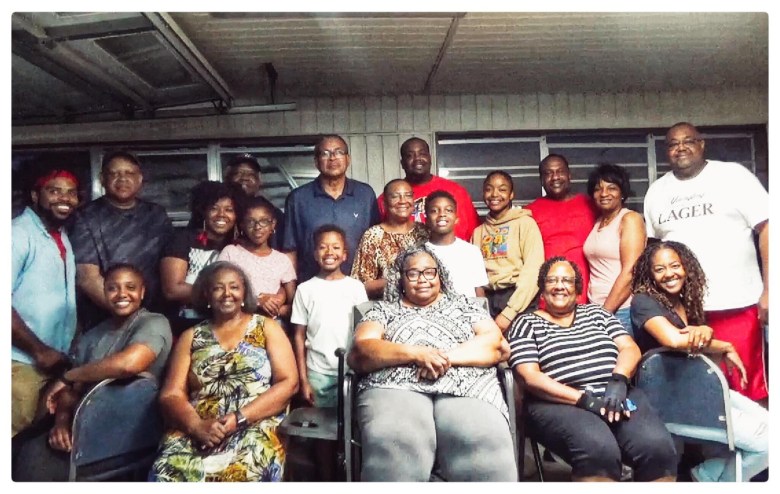|
Listen to this article here
Getting your Trinity Audio player ready...
|
Breaux Bridge, Louisiana wears a heavy historical crown as the Crawfish Capital of the World (crowned by the Louisiana Legislature in 1959). The town also has the largest crawfish festival, which attracts over 100,000 attendees.
According to the Attakapas Gazette, historically Southwest Louisiana consumed about 80% of the crawfish annually in the United States. The state produces more crawfish than any other place in the world.
Currently, Louisiana harvests over 110 million pounds yearly, with an economic impact of 120 million dollars. But crawfish was essential to Louisiana before the hype.
Indigenous Peoples on the Gulf Coast have harvested and eaten crawfish for centuries. For Louisiana Creoles and Acadians, crawfish was a cheap (or free) food in surplus used for survival.
Born and raised in Breaux Bridge, Brian Egland attended the University of Louisiana at Lafayette. He received a Bachelor of Fine Arts with a concentration in performing arts.
He is a Southern Soul Playwright and a resident playwright with the Tony Award-winning National Black Theatre’s I Am Soul Series.
His play in development, “The Festival In Da Back,” illuminates the Creole Crawfish Festival. The festival simultaneously happened with the Breaux Bridge Crawfish Festival from the 1960s to 2005.
As the counterpart for Creoles of Color and African Americans, the organization had its own Creole Crawfish King, Queen, and other royalty titles every May.
The Black Wall Street Times interviewed Egland on why “The Festival In Da Back” deserves a front-row seat.
Reflecting on upbringing in Breaux Bridge

Throughout history, outsiders have misinterpreted and skewed the stories of Creoles of Color.
Egland said, “To find information about the Creole Crawfish Festival I had to search through archives which I had to pay to search through. The information is not readily available, it’s not easy to access, and the Creole Crawfish Festival was not properly documented. So now that it doesn’t happen anymore…history is indeed told by the victor. The Creole Crawfish Festival gets mentioned, but its story does not get told.”
“The Festival In Da Back” captures the essence of Black Louisiana Creoles and proclaims cultural identity and upbringing. Taking place at the 1997 Crawfish Festival, the play tells the story of the Jolivette family who live at 318 Dorset Street.
Egland also hilariously touches on social and cultural challenges within these complex and intertwined communities.
“My memories of the Creole Crawfish Festival are set against a background of an influx of Black people coming into my town bringing new energy into the space we lived through new fashions, new songs, fancy cars, displaying wealth and prosperity,” Egland told the Black Wall St. Times.
“A parade of Blackness would pass in front of my grandparents’ home every year, and we developed a family tradition of watching it. My fondest memories are of that tradition,” Egland said.
Related Stories
- A Lafayette food truck park adds a farmers market
- Louisiana Creolophones encourage Creoles to learn their Heritage Language
- Hip Hop Caucus fights to end Louisiana’s environmental injustices
Using art to heal and honor the Creole Crawfish Festival
For Egland, healing is an important theme to show throughout “The Festival In Da Back.”
“The question of my residency with the NBT has been, ‘What do I need to heal from?’ and to create a work that revolves around that idea as well as allowing for that healing to happen,” he said.
“I’ve always struggled with where I was. With Breaux Bridge. With Louisiana. I’ve had to grow into an understanding that where I am from is not a punishment, but a placement for perspective. That understanding is healing and the process of embracing that has been through learning to love my culture through discovering its stories,” Egland said.
The memorable table play reading and oral history research recently took place. It displayed Creole Crawfish Festival memorabilia, photos, and news archives.
Egland’s intentional gesture to be inclusive of identities throughout the play is subtle yet noticeable.
“From the perspective of healing. There is a stigma, especially in 1997, that revolved around sexual orientation and special needs. From the perspective of me as a child at that time, it seemed as if a person who had one or the other, or both was taboo in some way,” Egland expressed.
“They often got picked on, looked down upon, and if not that…just not seen in the light of a full human, to me. I wanted to have Fuzzy in the play as a way to apologize to him and those similar to his character and being. To allow a light on them. For them to be seen,” he said.
A promising work in progress
“The Festival In Da Back” is currently in the developmental stage. In addition, the play will debut in New York City when the time is right. Egland said he deeply appreciates the National Black Theatre supporting his project remotely.
“NBT has allowed me to take part in this highly sought-after opportunity from where I stand [by] supporting me in allowing parts of this project to happen outside of where they can physically be,” Egland said. “They have truly given me time and space to grow this project and grow as an artist myself. Letting one ‘be’ is such a big form of support…”
His National Black Theatre support includes artistic production associate Ava Novak, Soul Series L.A.B & special projects program manager Belynda M’Baye, and executive artistic director Jonathan McCrory.
The modern-day fused Crawfish Festival has long-term visitors torn between the controversial decision. Nevertheless, the original Creole Crawfish Festival deserves archiving and recognition by the state of Louisiana and the nation.
If readers have any stories or memorabilia about the Creole Crawfish Festival in Breaux Bridge, then reach out to Egland.


